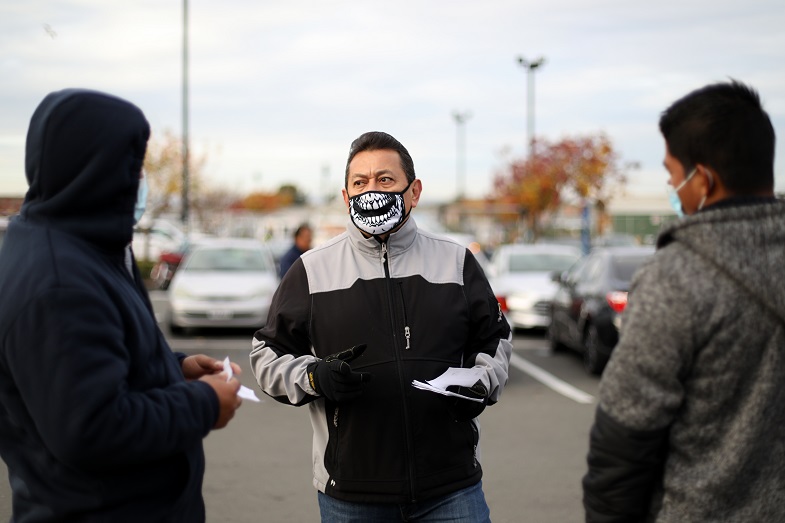BART PD employees donate to jacket, glove drive to warm hearts and hands of day laborers
Rudy Lara, center, of the Multicultural Institute, talks with day laborers
Story by MELISSA JORDAN | Photos by MARIA J. AVILA
BART Communications
Day laborers, whose work helps power essential construction around the Bay Area, are often transit-dependent and rely on BART to get to their jobs.
BART Police Department employees are lending a hand this holiday season with a drive to donate jackets and sweaters, work gloves, warm beanie hats, tools or gift cards to benefit the day laborer program at the Multicultural Institute of Berkeley and Richmond.
“We are a nonprofit organization that works with the low-income community,” said Rudy Lara, head of the Institute’s day labor program in Contra Costa County. “We help them to find jobs. Most of these day laborers, they’re here alone without their families. We want to provide a little Christmas cheer and show them they are part of the community.”

Day laborer Israel, pictured above, had on a light sweatshirt and thin gloves
BART’s Community-Oriented Policing and Problem Solving (COPPS) unit is leading the drive with collection bins at various worksites around the system, with donations running through Monday, Dec. 21.
On Tuesday, a group of laborers gathered on a cold, gray morning outside the Home Depot in El Cerrito. Many were without coats, hats or gloves. All wore face masks, reflecting the coronavirus pandemic that has hit especially hard in the Latino community, which includes many day laborers.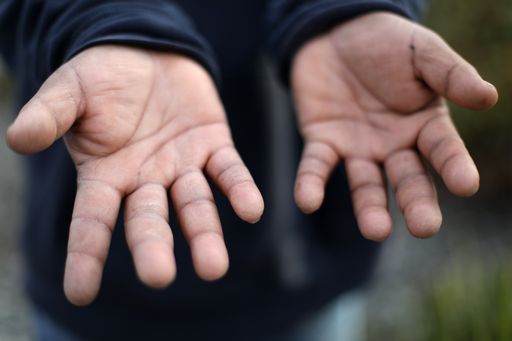
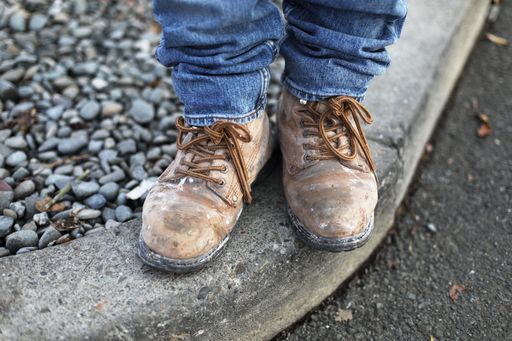
A day laborer had no gloves to wear and had worn workboots
“The pandemic has affected me in that lately I have not been working every day,” said Rolando, who will spend the holiday away from his loved ones. “I normally send money home to Guatemala, and that money helps care for my parents, family and wife.”
He said he would be grateful for donations of measuring tapes, gloves, drills, and other tools “anything that one can use to make a living,” he said.
Israel, another laborer who has been living in the U.S. for two years, said his work has been cut by the pandemic but that he uses public transit when he gets jobs.
“I don’t have a car, so BART and the bus are my main modes of transportation,” he said.
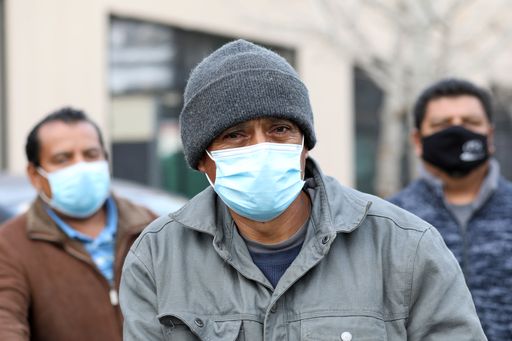
A group of day laborers from the Multicultural Institute’s day laborer program
Day laborer Marvin takes BART to work in Richmond from his home near Fruitvale Station. Fruitvale has emerged during the pandemic as one of the most heavily used BART stations, reflecting the demographics of the Latino population around Fruitvale and its many essential workers who can’t do their jobs from home.
“I’ve been using BART for the past three months since I came to the U.S.,” Marvin said. “We don’t have a car.”
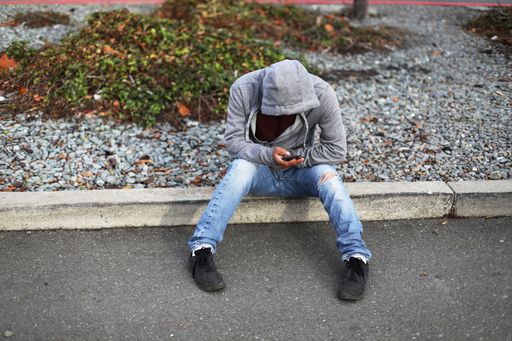
A day laborer sits on the sidewalk in ripped jeans and a light sweatshirt
Members of the general public who wish to support these efforts can make a direct donation to the Multicultural Institute via its website, where you also can find resources if you have a job for a day laborer.
